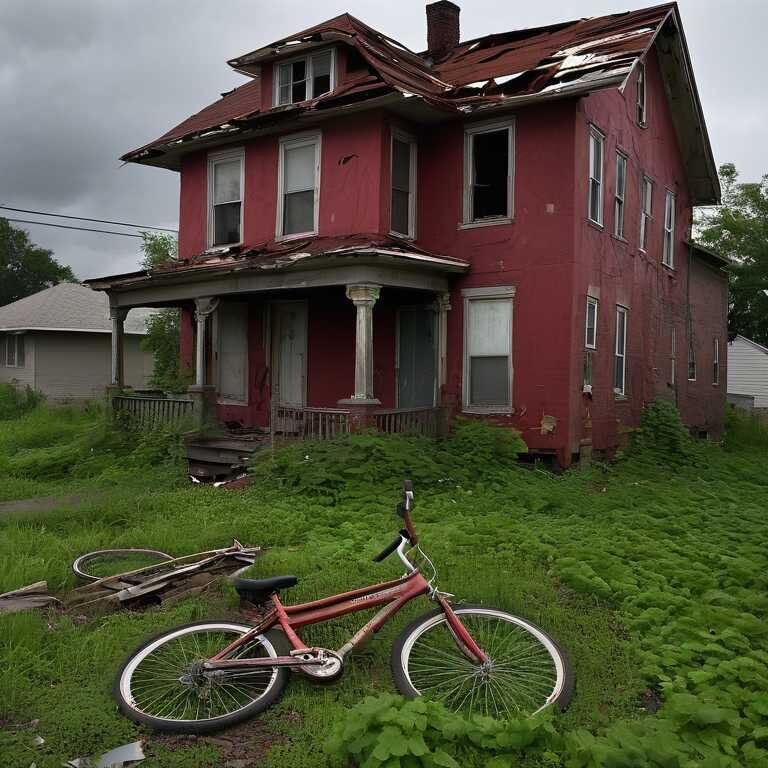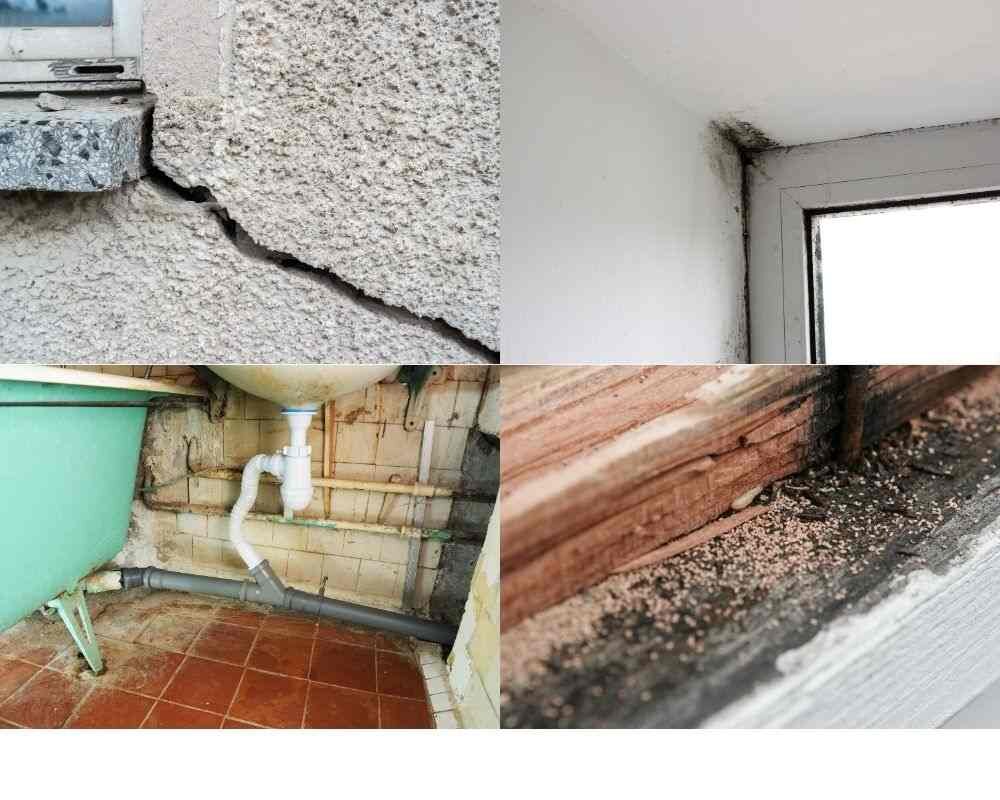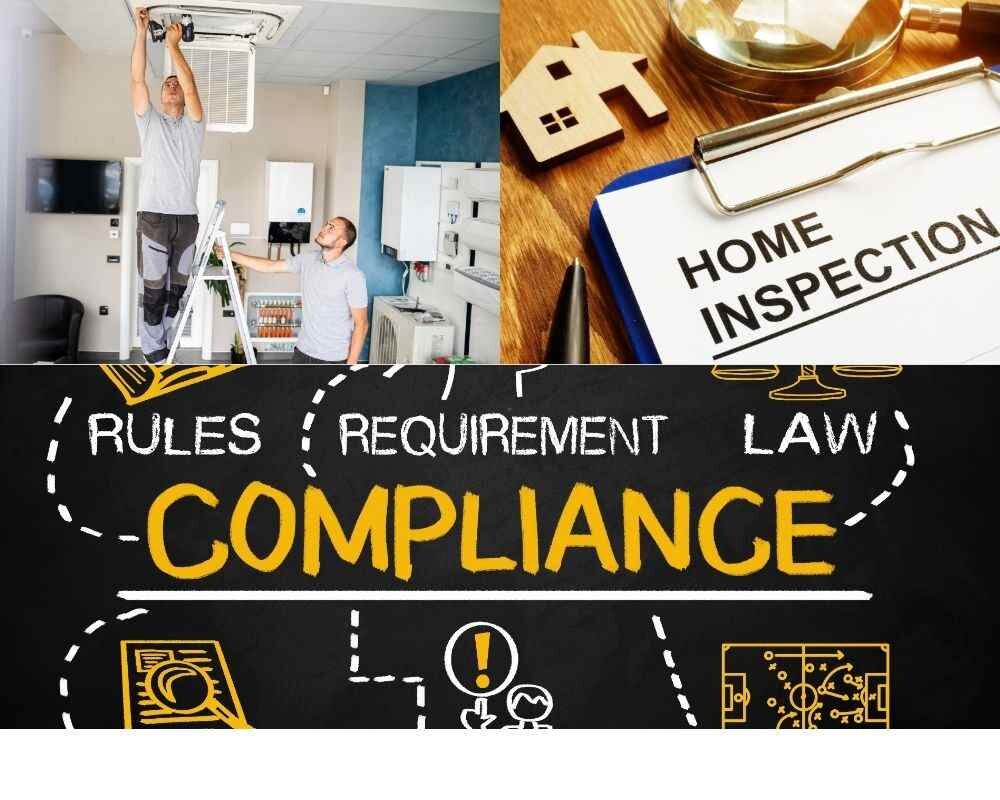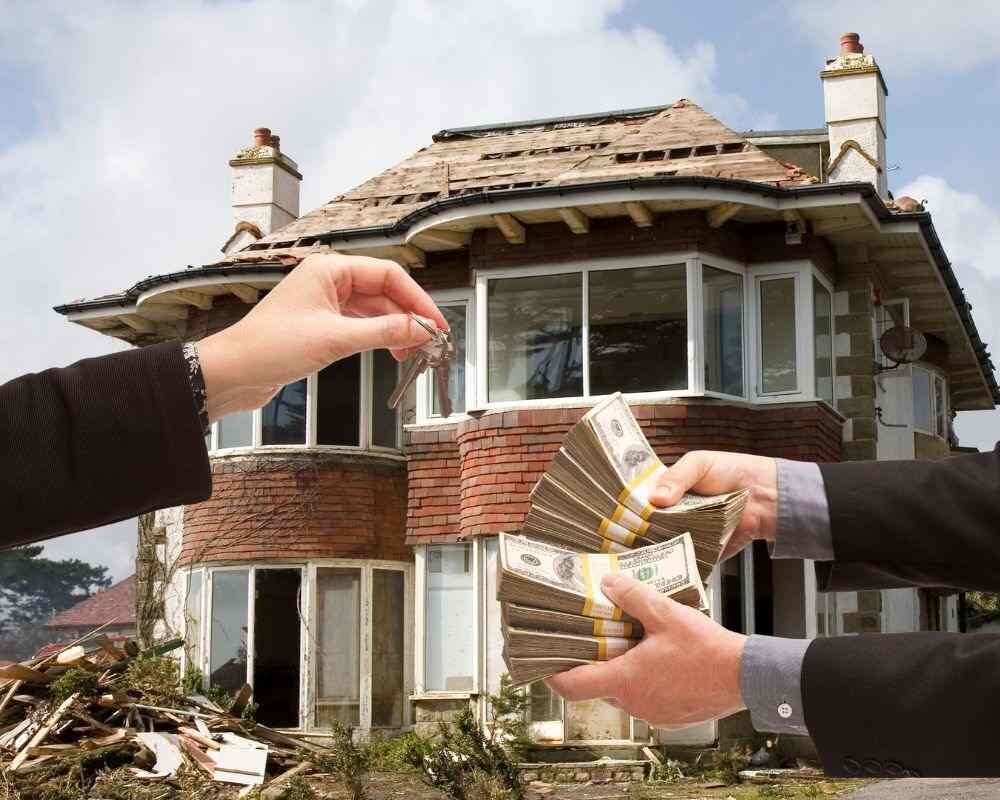
As someone who buys houses directly from homeowners — including homes with serious issues — I can tell you: no one ever expects their house to be condemned. But it happens more often than you’d think. We’ve worked with property owners who were handed notices out of nowhere, had tenants complaining about dangerous conditions, or inherited homes in such bad shape that the city got involved before they even had a chance to fix it.
If you’re facing a condemnation notice, or you’re just trying to understand what could lead to a house being condemned, this guide will help you get clear answers. I’ll break it down in plain language: what condemnation really means, who has the authority to do it, and how to protect yourself — whether you want to fix your house, sell it as-is, or avoid condemnation altogether.
What Is a Condemned Property and Why It Happens
A condemned house is a property that the city, county, or local government agency has officially deemed unsafe to live in. Once this happens, the homeowner, tenants, or anyone living there is legally required to vacate the property — usually immediately. You can’t live in it, you can’t rent it out, and in many cases, the local government will shut off utilities like water and electricity until the home is either repaired or demolished.
Condemnation is more than a word — it’s a legal designation that a home is no longer fit for human occupancy. That sounds harsh, and it is, but it’s usually triggered by risks like a collapsing roof, black mold spreading through the walls, electrical systems that could cause a fire, or pests infesting the house. Once the house is officially condemned, it’s not just about property — it’s about health and public safety.
Who Has the Power to Condemn a House?
Typically, building inspectors, code enforcement officers, or the local health department are the ones with the legal authority to condemn houses. They don’t just show up randomly — there’s usually a complaint, a visible problem from the street, or an issue that’s flagged during a routine inspection or permit process.
Sometimes condemnation isn’t about safety at all. Under eminent domain, the government can condemn private property that’s otherwise in good condition if they need the land for a public project, like expanding a road or building a school. If that’s the case, they’re supposed to pay homeowners fair market value — but that’s another conversation, and it doesn’t always feel “fair.”
Why Do Authorities Condemn Homes?
In my experience working directly with homeowners who’ve gotten that dreaded “condemned” label slapped on their door, here are the most common reasons a house may be condemned:
- Severe structural damage — cracked foundation, sinking floors, collapsing ceilings
- Major health code violations — toxic mold, sewage backups, unsafe drinking water
- Pest infestations — pests like termites or rodents that put the house at serious risk
- Dangerous DIY renovations or unpermitted work — especially with electrical and plumbing
- Homes left vacant or abandoned too long — squatters, vandalism, and city takeover
- Illegal activities on the premises — like drug labs or prohibited short-term rentals
If a home is putting others in danger — even if it’s not your fault — the city can, and often will, condemn the property to force repairs or have it cleared.
10 Common Reasons Authorities Condemn Houses
Over the years, I’ve walked into hundreds of properties — some with minor issues, others where I couldn’t take a deep breath without coughing. When cities condemn properties, it’s not always because the home is falling apart from top to bottom. Sometimes, it’s just one major issue that triggers a safety violation.
If you’re wondering why your house might be declared condemned, here are 10 of the most common issues I’ve seen — and the most common ones public officials act on.

#1. Unsafe Structural Damage
Major foundation cracks, sagging floors, or roofs at risk of collapse are red flags. If a building’s structure is unstable, it’s an immediate threat to life. Structural inspectors won’t take that lightly — and your property could instantly be declared unsafe.
Related: Selling a House with Structural Problems
#2. Toxic Mold or Mildew Growth
Black mold is dangerous. It spreads quickly and can damage your health with long-term exposure. Cities will condemn a house with unchecked mold, especially in basements, walls, or around leaking roofs.
Related: Can You Sell a House As-Is With Mold?
#3. Fire or Water Damage
Major water intrusion — maybe from floods or burst pipes — can lead to mold, rot, and structural harm. Fire-damaged homes that haven’t been properly repaired can also be condemned on sight.
Related: Can You Sell a Water-Damaged Home for Cash?
#4. Sewage or Plumbing Failures
Backed-up sewage, broken pipes, or leaking wastewater systems are deemed health hazards by code enforcement. If there’s any trace of black water or untreated waste, they’ll act fast.
#5. Hazardous Electrical Wiring
A DIY job gone wrong or outdated, ungrounded wiring is a serious fire risk. Electrical systems that don’t meet local building codes are a major factor in property condemnations.
Related: Selling House As-Is With Code Violations
#6. Pest Infestations
Ongoing infestations by rats, roaches, or termites create health and safety issues. Especially when pests spread across multiple parts of the home, the city may declare it unfit for habitation.
#7. Illegal Renovations or Unpermitted Additions
Many homeowners don’t realize that remodeling without permits — especially involving plumbing or electricity — can result in serious code violations. If the city finds it, your home could be red-tagged.
#8. Long-Term Vacancy or Abandonment
Vacant homes that are neglected tend to attract vandalism, squatters, and overgrowth. Once abandoned, a city can take inspection action and mark the property condemned to prevent community impact.
Related: What Happens When a House Sits Vacant
#9. Hoarding or Unsanitary Conditions
We’ve walked into homes filled wall-to-ceiling with debris, garbage, and biohazards. Authorities can condemn a home quickly due to hoarding-related health conditions.
#10. Drug Labs or Criminal Activity
If illegal activities go on inside — specifically meth labs or other dangerous operations — law enforcement and the city will intervene. Properties like that often require full remediation before they’re safe again.
Related: What Happens to Condemned Houses After Illegal Activity
How Do You Know If a Property Is Condemned?

From my experience buying distressed properties, there are several clear signs and official indicators that a house has been condemned or is about to be. Let me break down exactly what to look for and what happens during the condemnation process.
Official Condemnation Signs and Notices
The most obvious sign is a bright-colored notice (usually red or orange) posted on the property. When a city condemns a house, they don’t do it quietly. You’ll typically see:
- A “CONDEMNED” notice on doors and windows
- Official warning signs about entering the property
- Notices from the health department or building inspector
- Written orders to vacate within a specific timeframe
- Utility disconnection notices
Related: What To Do If Your House Gets Condemned
Public Records and Documentation
As a real estate investor, I always check public records before making offers. Here’s where you can verify if a property is condemned:
- County assessor’s office records
- City building department files
- Local code enforcement records
- Property tax records (which may show special assessments)
- Municipal court records for code violations
The condemnation will be officially documented, and these records are usually public information.
Physical Signs a House Might Be Condemned Soon
Before official condemnation, there are usually warning signs. I’ve seen these issues repeatedly in properties that end up condemned:
- Boarded-up windows and doors
- Visible structural damage visible from the street
- Overgrown vegetation and clear signs of abandonment
- Multiple code violation notices
- Utility meters that have been removed
- Signs of serious pest infestation
- Clear evidence of fire or water damage
Related: Warning Signs Your House Could Be Condemned
How to Check If a House Is Condemned
If you’re worried about a property’s status, here’s what you can do:
- Contact your local building department directly
- Request a property records search at city hall
- Look up the address in code enforcement databases
- Check with the county health department
- Search online property records for violations
- Ask a real estate attorney to investigate the title
Remember, condemnation records are public information, so you have the right to know a property’s status.
What Happens After Condemnation
Once a property is officially condemned, several things typically happen:
- Residents must vacate immediately
- Utilities are usually disconnected
- The owner receives a detailed list of violations
- A timeline for repairs or demolition is established
- Fines may begin accumulating daily
- The property cannot be legally occupied until violations are fixed
Related: Understanding the Condemnation Process
Knowing these signs can help you act before condemnation becomes official. Whether you’re a homeowner or looking to buy, understanding the warning signs gives you time to make informed decisions about the property.
Options for Owners of Condemned Properties
Having your home labeled as a condemned property is more than just emotionally overwhelming — it brings legal, financial, and logistical challenges. Whether you’re a homeowner facing house condemnation for the first time or you’ve inherited a home marked for demolition, you have more options than you may think.
#1. Appeal the Condemnation
If you believe the municipal building department made a mistake or acted unfairly, you can often file an appeal. Check your condemnation notice for instructions — most cities provide a short window (usually 10–30 days) to request an administrative hearing. Support your appeal with professional inspections and repair plans to prove the home can be made habitable again.
Related: What To Do If Your House Gets Condemned
#2. Make the Necessary Repairs
If you’re able to invest in serious repairs, you can bring the property back into compliance. You’ll need:
- A licensed contractor with experience correcting code violations
- Repair permits from your local building office
- Clearance from the health department if unsafe living conditions (like mold or pests) are involved
Keep in mind, this process isn’t cheap — especially with structural issues or hazardous materials like asbestos. But if you’re emotionally attached to the home and have the capital, it may be worth it.
Related: Health and Safety Risks in Condemned Houses
#3. Sell the Condemned Property As-Is

Many owners overlook one of the best real estate solutions available: selling a condemned house as-is to a cash home buyer. Investors like us specialize in buying homes with code violations, damage, or abandonment history. As long as you own the house clear (or with manageable liens), you may be able to:
- Sell quickly without making repairs
- Avoid fines and legal action from the city
- Get cash to move on
We’ve worked with homeowners across California who were shocked they could still walk away with a fair cash offer — even with a big red sticker on the door.
Related: Can You Sell a Condemned House?
#4. Let the City Demolish the Property (as a Last Resort)
If repairs aren’t realistic and you can’t find a buyer, your last option is to let the city proceed with demolition. However, some cities may charge you for it — adding those costs as a lien on your land. That debt stays with the title and may make the land difficult to sell later.
Before it gets to this point, it’s worth exploring whether a local investor is willing to take the problem off your hands and handle the demolition themselves.
Related: How to Get Rid of a Condemned House Fast
Key Takeaways and What To Do Next
A house condemnation notice doesn’t mean you’re out of options — it simply means it’s time to act quickly and strategically. From safety hazards to structural damage, cities will step in when they deem a home unfit, but that doesn’t mean you’re forced to absorb the costs or wait for demolition.
Here’s what to remember:
- Know the warning signs of a condemned property — especially if you’re behind on repairs or the home’s been vacant.
- Understand your rights and options — from filing appeals to selling the property as-is for cash to avoid escalation.
- Repairing a condemned home is possible, but costly — make sure the investment makes financial sense based on the property’s condition.
- Selling a condemned house may be the fastest and least stressful way to offload the burden — especially if you work with experienced investors like Click Cash Home Buyers.
- Work with professionals — from the municipal building department to real estate experts — to guide your decision.
If your property has severe code violations, unsafe living conditions, or you’ve been served a condemnation notice, we can help. Click Cash Home Buyers specializes in buying as-is homes, even those with the worst reputations.
Ready to move on from a condemned house?
Selling your condemned house with Click Cash Home Buyers can provide a quick solution. They specialize in purchasing properties as-is, eliminating the need for costly repairs. By opting for this route, you can bypass the traditional real estate market and its uncertainties. Owners may get over the difficulties of dealing with condemned homes thanks to Click Cash Home Buyers’ hassle-free transaction process. This could be your best bet to offload a house with a condemned status and move forward with a fresh start.

Get a free cash offer today with no obligations, no repairs needed, and total discretion. Let us take the stress — and the property — off your shoulders.
Contact Us
We would love to hear from you! Please fill out this form and we will get in touch with you shortly.

